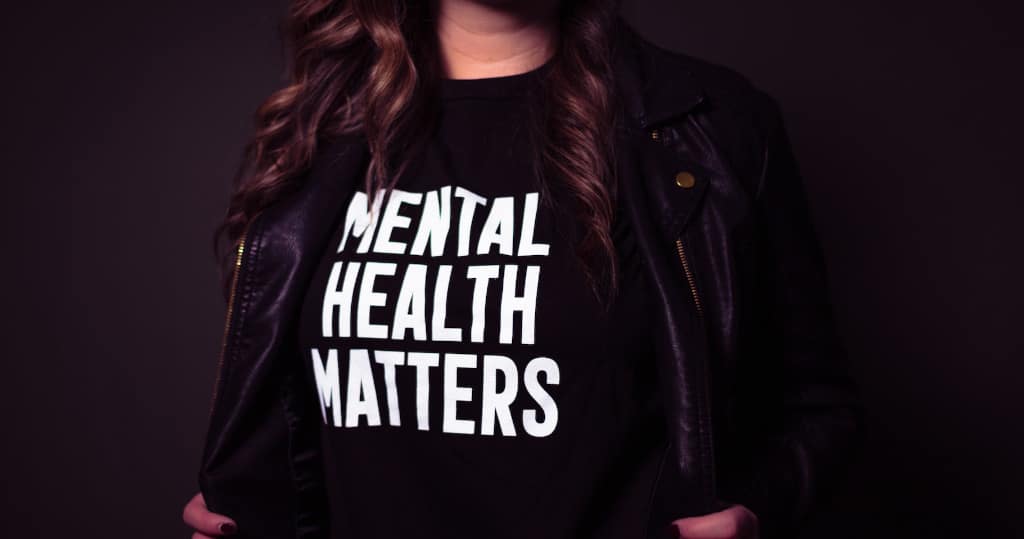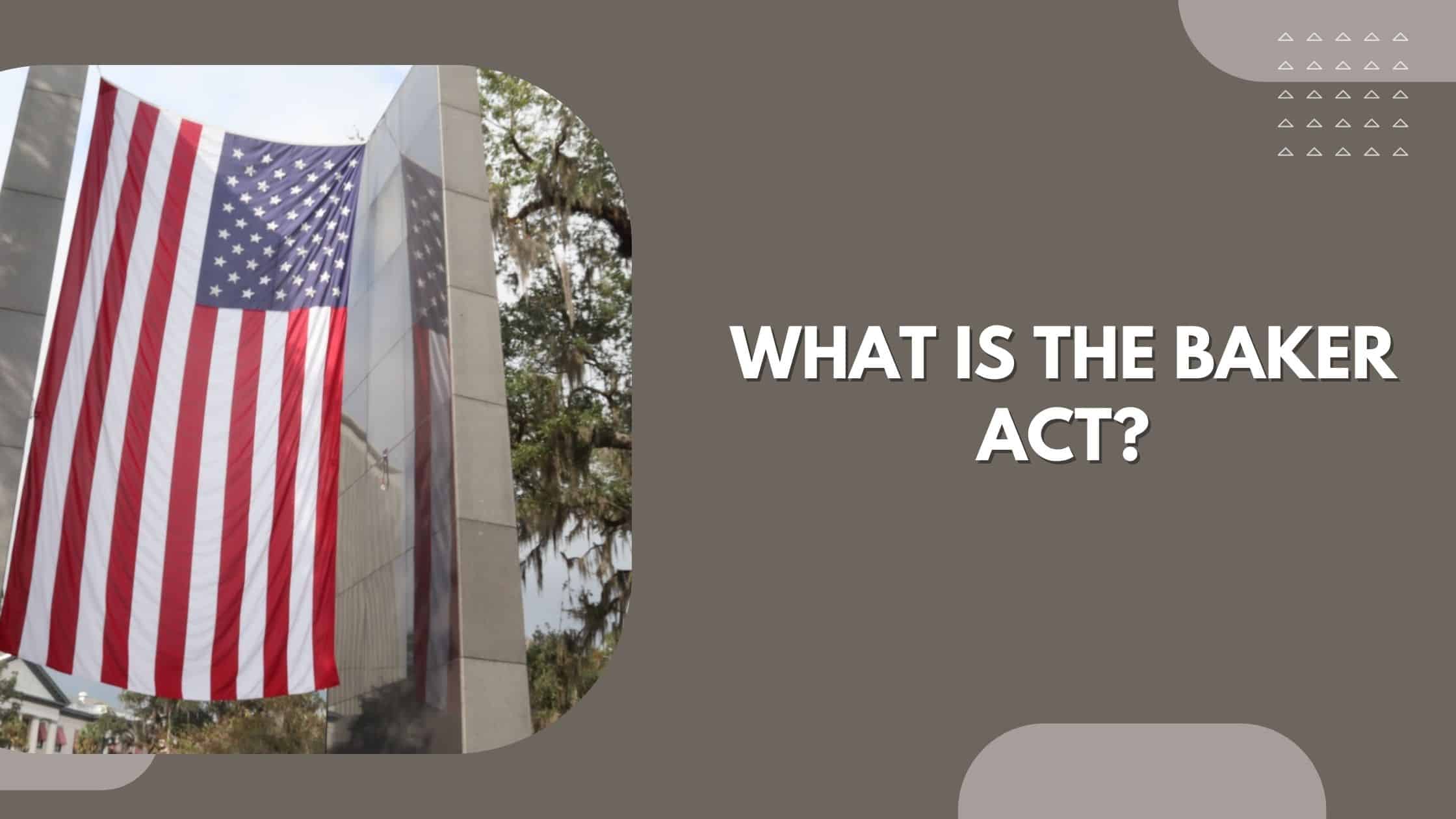Table of Contents
ToggleInvoluntary Psychiatric Commitment
The Baker Act is commonly referred to in the media. However, few people know that this act originated from and exclusively belongs to Florida.
Despite this, many states adopted similar laws to this Florida statute due to its extensive role in public health and protecting individuals with mental illness.
So what is the Baker Act, and when is it used? More importantly, when can’t it be used? Let’s explore the meaning behind this law and how it’s used on a daily basis. Additionally, we’ll look at similar examples in other states.
What is the Baker Act?
The Baker Act refers to the Florida Mental Health Act of 1971. It allows for the involuntary hospitalization of an individual demonstrating symptoms of a mental illness whose recent behavior suggests they may pose a risk of bodily harm to themselves or others.

Get Smarter on US News, History, and the Constitution
Join the thousands of fellow patriots who rely on our 5-minute newsletter to stay informed on the key events and trends that shaped our nation's past and continue to shape its present.
The Baker Act is used under extreme circumstances where there is a credible threat to an individual or public safety.

Under Florida’s guidelines, a person who refuses voluntary examination and displays an inability to accurately assess their health qualifies to be put under the Baker Act.
Individuals who are under the influence, have a developmental disability, or have a substance abuse problem may be exempt from the Baker Act.
When Was the Baker Act Drafted?
The Baker Act was introduced in 1971. Maxine Baker, a long-time senator and supporter of mental health advocacy, initially sponsored the bill.

While the Baker Act was first drafted as a Florida statute, many other states created similar bills and legislation.
Some bills refer to this examination as an involuntary psychiatric hold, and these holds can last up to 72 hours. If a severe, ongoing mental health crisis cannot be stabilized in the short term, a long-term psychiatric stay may be necessitated by a judge.
What Is the Act Used For?
The Baker Act was put into place as a means of keeping not only individuals safe but the people around them.
If a person is suicidal or has active plans to harm themselves, the Baker Act can save this person’s life by requiring an immediate medical evaluation. In some instances, the police are involved to better protect the individual’s safety.

Some individuals experiencing profound mental distress may feel the desire to cause substantial harm to others, such as family members or even strangers.
The Baker Act allows law enforcement to detain individuals who threaten public safety, but in a way that helps them receive the appropriate medical attention for their mental illness.
States That Have Adopted Similar Legislation
The Baker Act can refer to Florida’s original state law or one of many state laws regarding involuntary commitment. Several states have laws regarding involuntary psychiatric commitment or evaluation. Approximately 33 states have at least some form of the Baker or Marchman Act.
The latter act is an addendum to Florida’s original Baker Act that applies specifically to individuals with a substance abuse disorder.

If an individual isn’t necessarily struggling with a mental health condition, but there is clear evidence of routine substance abuse and the capacity to cause bodily harm to themselves or others, they may also meet the criteria for involuntary commitment.
These individuals can be referred to mandatory treatment programs for their alcoholism or drug use.
Controversy Surrounding the Baker Act
The involuntary placement in a receiving facility by a mental health professional of a person struggling with their mental health is prone to cause a number of legal and ethical issues.
If law enforcement or a mental health professional determines that an individual meets the criteria to be examined, they are stripped of their legal rights. They cannot refuse temporary detention or involuntary assessment in an appropriate facility.

A hold may last for up to 72 hours before an individual is determined to be mentally sound, causing significant distress and emotional damage. As a result, the Baker Act has been the center of many lawsuits in which patients felt they were unlawfully detained.
States That Don’t Use Such Legislation
Virtually every state has some variation of legislation similar to the Baker Act, however lenient or strict it may be. Three states, however, have no AOT laws. AOT stands for assisted outpatient treatment.
It’s a form of court-mandated treatment for individuals who pose a threat to themselves or others or show an inability to care for themselves. It’s akin to the Baker Act but isn’t specifically dedicated to emergency psychiatric assessments.
These three states are Massachusetts, Maryland, and Connecticut. This means that individuals unable to function without assistance or severe psychiatric intervention cannot be mandated to receive involuntary treatment.
The Baker Act in Popular Culture
Curiously, the Baker Act has gone on to make recurrent appearances in American pop culture, media, and even language. Many people use the term “Baker Act” as a verb.
For example, “She was extremely upset and had to be Baker acted.” While the Baker Act is frequently alluded to, obtaining a petition isn’t so simple.

A family member or health professional must petition for emergency authorization, and then a qualified medical professional must assess the patient for the initial criteria.
From there, law enforcement, a social worker, or emergency services will transport the patient to the hospital for their examination.
In other instances, a judge may approve a long-term psychiatric stay for an individual with a long history of mental illness that poses an imminent threat to themselves or others.
Protecting the Vulnerable
Many people have heard of the Baker Act but aren’t exactly sure what it is or what criteria must be met for this act to be carried out.
The Baker Act was drafted in the 70s and has gone on to affect the legislation of other states. While this act isn’t perfect, it’s saved the lives of countless patients and even their families.

While some states don’t have outright laws supporting involuntary psychiatric commitment, almost all have some form of protection for vulnerable individuals in need of help.
A person does not have to be suicidal to be “Baker acted.” Most states allow for the involuntary assessment and involuntary commitment of individuals who can no longer adequately care for themselves.











